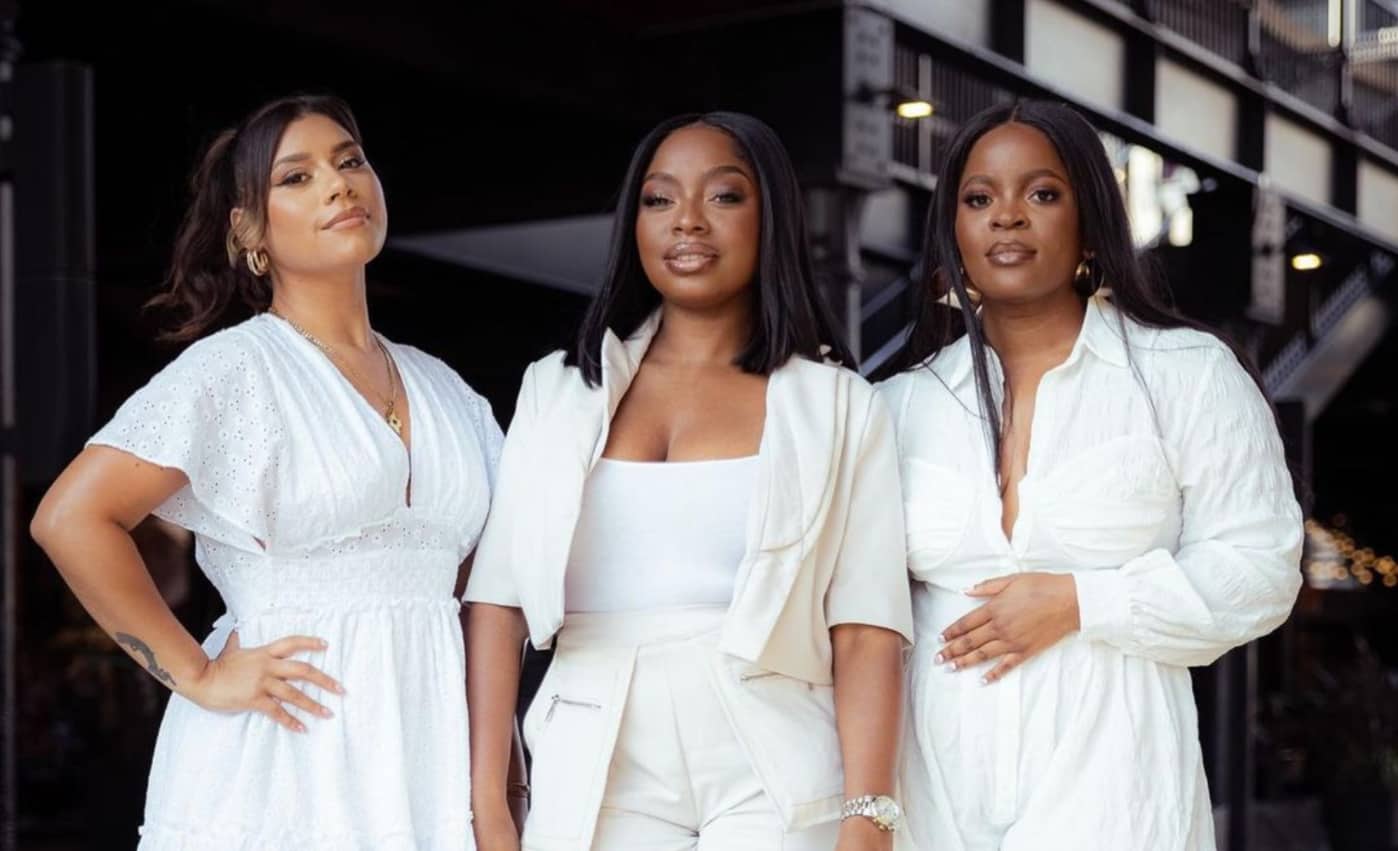The future of podcasting is in prioritising audio over video and appealing to the 50-plus audience, according to DMG Media’s head of podcasts.
Jamie East also says that in order for the influencer industry to achieve long-term success, it must focus on improving its professionalism and agent-talent relationships.
Key takeaways:
- Jamie East has worked in the media for 25 years and was given the opportunity to build a podcast department from scratch at DMG Media
- Since East started in July 2023, the group has gone from just one podcast to having 20 in the works
- Earlier this year, the Daily Mail launched Straight to the Comments! with YouTubers Josh Pieters and Archie Manners, and The Sidebar with presenter Richard Arnold
- East favours podcast hosts who work hard and do their job well over talent with a following: “Hiring just because of their name never ever works”
- He says the influencer market needs to be less greedy and improve its professionalism
- The future of podcasting is in straight audio rather than video and in reaching the older generations
- Not all of the DMG Media projects will see the winter: “I’m a big believer in if things aren’t working you just stop straightaway – I’m not afraid of failure”
Jamie East is a big media player, having worked in the industry for nearly 25 years, both in front of and behind the camera. He created entertainment website Holy Moly before selling it to Endemol in 2012, presented Big Brother’s Bit On The Side and Sky Atlantic’s Game of Thrones fan show Thronecast, and went on to host radio shows on Virgin and TalkRadio.
In the podcast space, he has launched and presented multiple shows, including a chart-topping daily news podcast called The Smart 7, and produced several others for the likes of Netflix and Sky.
As of July 2023, East has been leading the podcast team at DMG Media, which owns titles such as the Daily Mail, MailOnline and the Metro.
In less than a year, DMG Media has gone from having just one podcast – The Trial of Lucy Letby – to several audio projects being produced and 19 in pre-production.
“I’m not a traditional Daily Mail reader but I love a challenge,” East tells CORQ. “There was nothing already in place in terms of a podcast team, infrastructure or strategy, it was a blank slate, which is really rare.
“MailOnline is a big attraction to me because it’s an absolute juggernaut to plug into when it comes to sharing our content.”
East acknowledges DMG Media has come to the podcasting space later than most but sees this as an advantage.
“Coming to it a bit later is not detrimental – it’s allowed me to see what doesn’t work and hone our strategy a lot quicker and avoid mistakes others have already made.”
This should also support East’s ambitions within his role and the podcasting space as a whole. Firstly, to run a division that is a commercial success – “I’m not here on a philanthropic mission” – by building an audience and entrenching that following into the wider business, and secondly, creatively, “to make unexpected things”.
You may also like
DMG Media role – “Hiring people just because of their name never works”
In February, the Daily Mail launched a podcast called Straight to the Comments!, co-hosted by YouTubers Josh Pieters and Archie Manners (1.5M subscribers), which sees guests react to comments made on MailOnline articles.
The following month came The Sidebar, presented by Richard Arnold (250K Instagram followers) and featuring special guests such as Bobby Norris, Anna Whitehouse, Snoochie Shy, Lauren Layfield and Rezzy Ghadjar. In this show, Arnold and his guests discuss the latest showbiz stories from MailOnline’s sidebar.
“Those two were the easiest ones, they were the first ideas I came up with,” says East. “They’re what the Mail is known for and what people are talking about, it’s using our own content and community and data, and showbiz is an under-served genre in podcasting.
“Straight to the Comments! has a Gen Z audience and Sidebar is aimed very much at our existing readership, so they serve different people.”
Although some might consider these podcasts to feature a plethora of influencers, East doesn’t see it that way and it wasn’t a factor in the decision-making.
“I’ll take anyone who’s good,” he says. “Josh and Archie and I have the same agent so I knew them already and we’ve been looking for ways to work with each other for a long time. Richard is a very well-respected journalist – it’s like saying why did you hire Olivia Colman for your film?”
By definition, all talent are now influencers but not all influencers are talent, he feels. It’s clear that the media, entertainment industry and influencers all need each other but what hasn’t quite been solved yet is how that relationship works best.
“Hiring just because of their name never ever works,” East says. “TV had its fingers burned by YouTube in the Zoella era – no one did a good job and the audience doesn’t translate. I despair at seeing rando TikTokers hosting red carpets – it’s such a slippery slope.”
The business side of the industry has to shape up as well, according to East, including meeting certain standards of professionalism, building stronger relationships and improving negotiations.
“The influencer market has got extremely greedy, which shows a short-sighted vision. For example, I could have hired a celebrity as a podcast guest for £1,500 but it would have cost £10,000 for them to post about it and that’s completely back to front. It’s a Wild West when it comes to payments and there has to be a better way,” he says.
“In my experience, agents in the industry are poor and have bad relationships with their talent, which causes more problems. With some guests, you may want a frisson of danger and excitement during recording – but they still have to turn up on time.”
The Daily Mail does produce social clips for its shows but East has no plans to release videos of the full-length podcasts.
On the rise of video podcasts, East states he feels this is the antithesis of why podcasts originally became popular. “Podcasts are intimate to listen to and intimate to make as well. Podcasts are intense conversations. Louis Theroux would not get the same results if he was filming his interviewees the whole time. For him, the podcast is the product, not an ancillary vehicle for other content. Audio-first is always going to be my priority.”
Future projects – “I’m not afraid of failing”
Phase two of DMG Media’s podcast offering is set to appeal to a more traditional Daily Mail reader. Listeners can expect themes to include history, true crime, the royal family and sport.
“The 50-plus is one of the last great untapped markets in podcasting and there’s no one more 50-plus than the Daily Mail readership,” says East.
“It makes sense to tap into that existing audience and then pick up new ones on the way. I don’t care where they come from, no one is going to turn down a listener.”
2024 will see the launch of Don’t Do That – advising people not to do “ridiculous TikTok trends such as ear seeds” – Heists, Scams and Lies – the Mail’s crime and investigative journalists exploring cold cases and their stories that feel unfinished – and The Trial of Lord Lucan, featuring never-before-seen documents. Overall, the most important part of podcasting is the story.
“There are three types of podcasts,” East says. “Teaching a lesson; eavesdropping on a conversation; and taking you on a journey – if it touches on all three, that’s a great start. But it’s not enough anymore just to have two hosts who get on well.”
East will measure the performance of his launched projects on a number of pillars, including: listens (the key revenue driver); how it supports the business as a whole; how it raises awareness for the DMG brands; and the reach, especially depending on the demographic it reaches.
“We’re launching a lot but they won’t all see the winter. I doubt we’ll continue to have 20 live but it’s all learnings because, despite everything I’ve said, we don’t really know what our audience will enjoy and what will work, but I’m prepared to pivot,” he says.
“I’m a big believer in if things aren’t working you just stop straightaway – I’m not afraid of failure. The marker of success has to be growth of one of those pillars. If it’s stagnant, and you can’t make money out of it, what’s the point – why are we doing this?”
By Lauren Harris, CORQ editor. Picture credit: Jamie East










